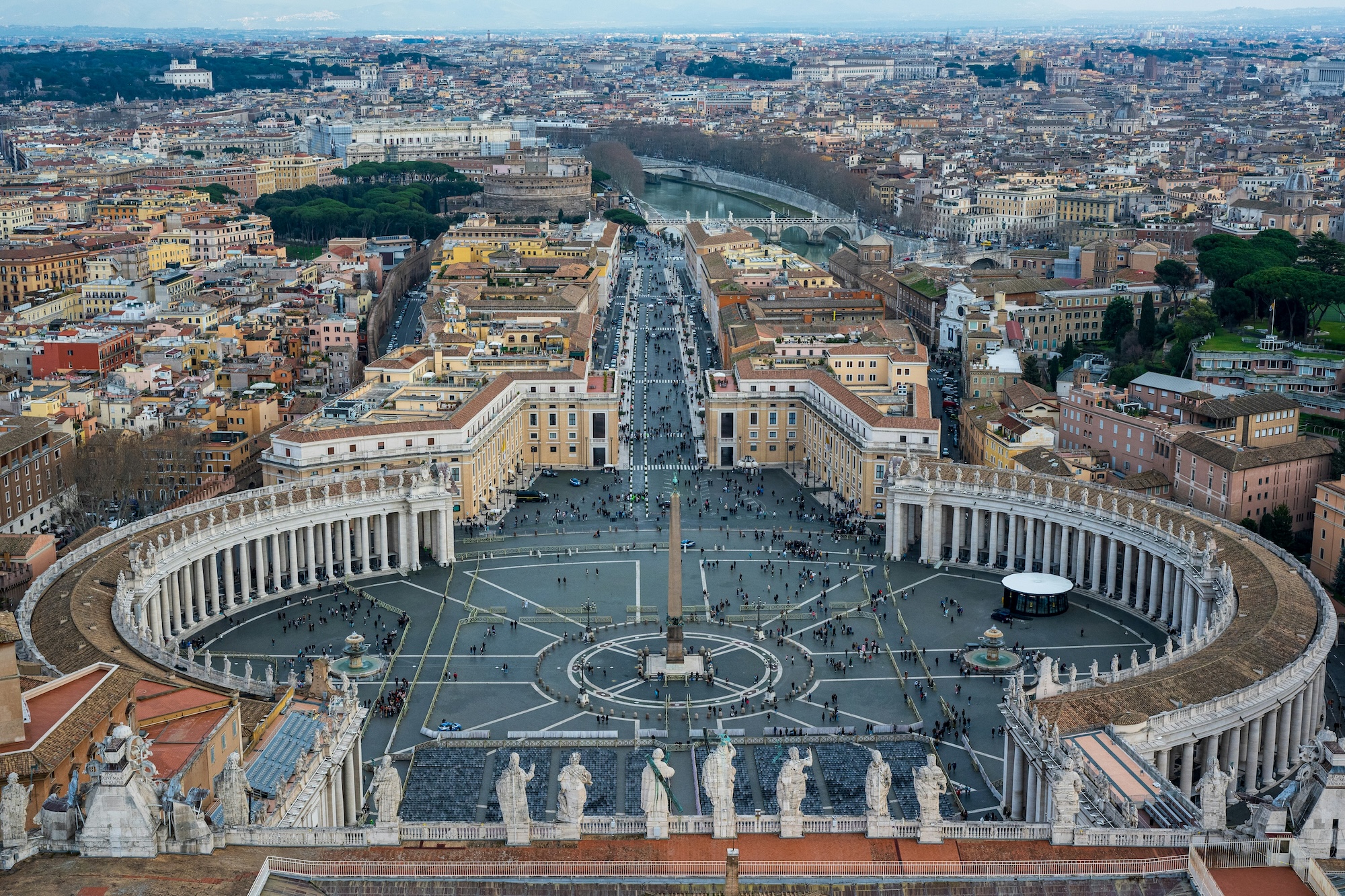
News Contributor Cassandra Fong reports on Pope Leo’s inaugural Mass, as he becomes the 267th Pope of the Roman Catholic Church
St. Peter’s Square was a tapestry of joy, reverence, and anticipation on Sunday, 18th May, as Pope Leo XIV celebrated his inaugural Mass as the 267th Pope of the Roman Catholic Church. For those in the crowd, it was more than just the installation of a new pontiff; it was the arrival of a man who had already begun to shape the future of the Church with his profound heritage and bold vision for peace.
The Mass, an event steeped in tradition, began promptly at 10 a.m. The Vatican was bathed in the warm glow of the morning sun, casting long shadows across the grand square. Pope Leo XIV, adorned in immaculate white papal vestments, stood before the congregation, a man of quiet authority and stirring presence. His was a papacy that had already become historic before the first Mass had even begun—he is the first pope from the Order of Saint Augustine, the first pope born in the United States, and the second pope from the Americas, after Pope Francis.
The ceremony itself was a grand display of unity and reverence.
The ceremony itself was a grand display of unity and reverence. The new pontiff received the pallium—his symbol of unity with the Church—and the Ring of the Fisherman, both profound markers of his new role. Before twelve representatives of the people of God, including cardinals and bishops, a vow of obedience was taken, reinforcing the Church’s collective support for Leo XIV’s papacy.
One of the most poignant moments came when Cardinal Luis Tagle of the Philippines, a figure long considered a potential papal contender himself, approached Pope Leo XIV and presented him with the Ring of the Fisherman. Cardinal Tagle, who is widely admired for his pastoral approach and his calls for global solidarity, passed on the sacred ring to the new pope, a moment rich with both history and humility. The act symbolized a peaceful transfer of power and unity within the Church, with Tagle, despite being a favourite to lead, humbly bowing to Leo XIV’s divine appointment.
The solemnity of the ceremony was followed by a stirring homily from Pope Leo XIV, who immediately set the tone for his papacy. His message was clear: the Church’s mission is not just about spiritual salvation, but about confronting injustice, particularly in the face of political oppression.
In his homily, Pope Leo XIV made his priorities clear. Speaking directly to the challenges facing the modern world, he called for a united Church and a world that reaches out beyond its divisions. ‘I would like our first great desire to be for a united Church,’ he said, “a sign of unity and communion, which becomes a leaven for a reconciled world.” This line, which the Vatican had underlined in the English translation given to the media ahead of the speech, clearly reflects the central theme of his address.
The pope emphasised that the world must not “close itself off into small groups,” urging the faithful to embrace a universal vision of love and community. “We are called to offer God’s love to everyone,” he said, “in order to achieve that unity which does not cancel our differences but values the personal history of each person and the social and religious culture of every people.” In a world torn apart by political, social, and religious divides, Pope Leo XIV’s words were a call for inclusivity and reconciliation.
‘I would like our first great desire to be for a united Church,’ he said, “a sign of unity and communion, which becomes a leaven for a reconciled world.”
The pope’s vision for the Church, however, was not limited to internal unity. He framed his papacy as an opportunity to build a “missionary Church” that opens its arms to the world. “Brothers and sisters, this is the hour for love,” he said, invoking the heart of the Gospel—the love of God that unites all people as brothers and sisters. He then echoed the words of his predecessor, Leo XIII, asking, “If this criterion were to prevail in the world, would not every conflict cease and peace return?”
As the crowds left St. Peter’s Square, it was evident that the newly appointed pope is prepared to face the challenges ahead with both unwavering faith and determined diplomacy. His papacy has begun with a powerful call for peace, and in the days to come, the world will watch as Pope Leo XIV takes on the difficult task of guiding the Church and the international community toward a future defined by justice, reconciliation, and lasting peace.
If you enjoyed this article from Redbrick News, consider reading more:
Ex-Dancer Settles with Royal Ballet School Over ‘Body Shaming’
Elon Musk’s Visa Partnership Makes X One Step Closer to Being the ‘Everything App’

Comments